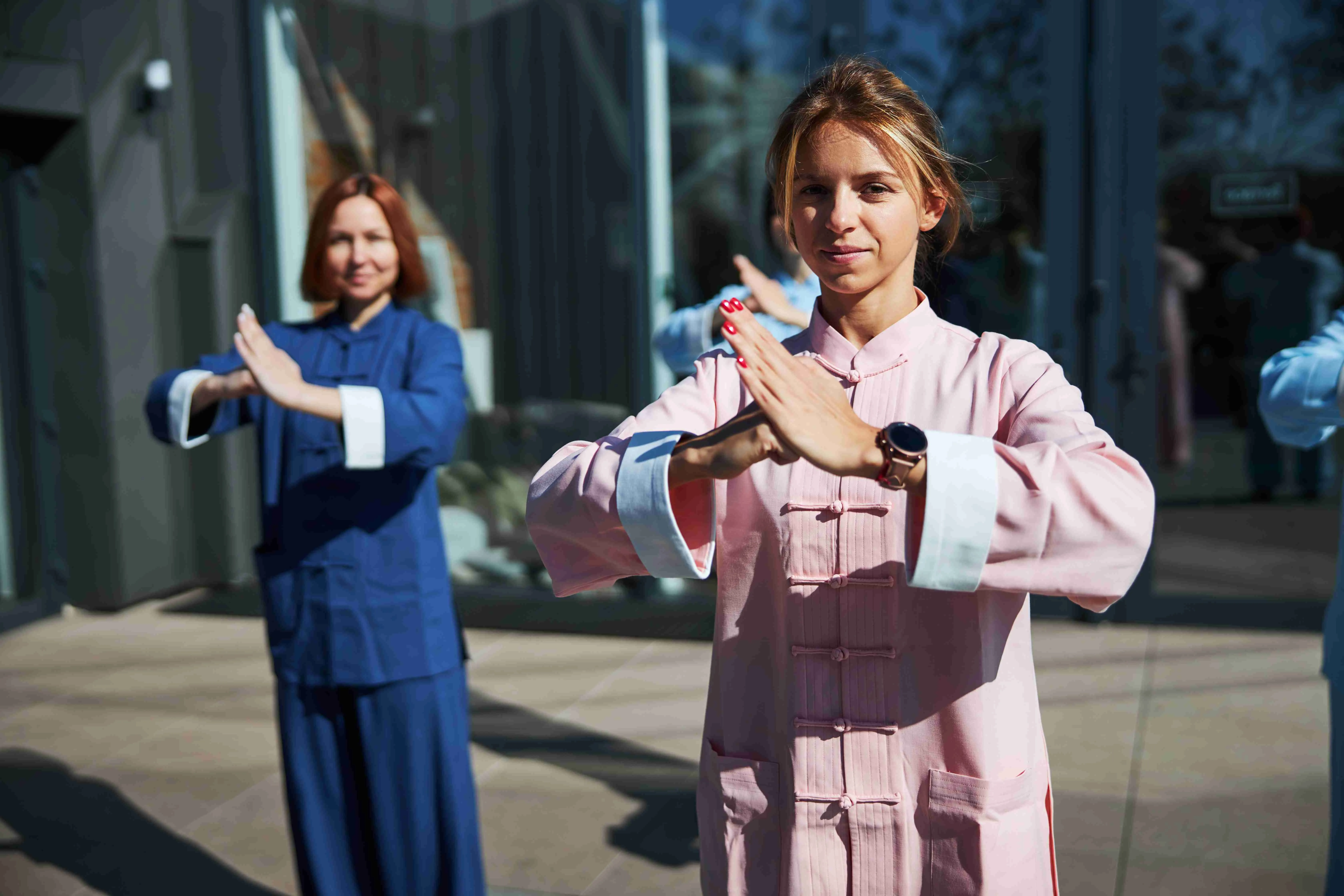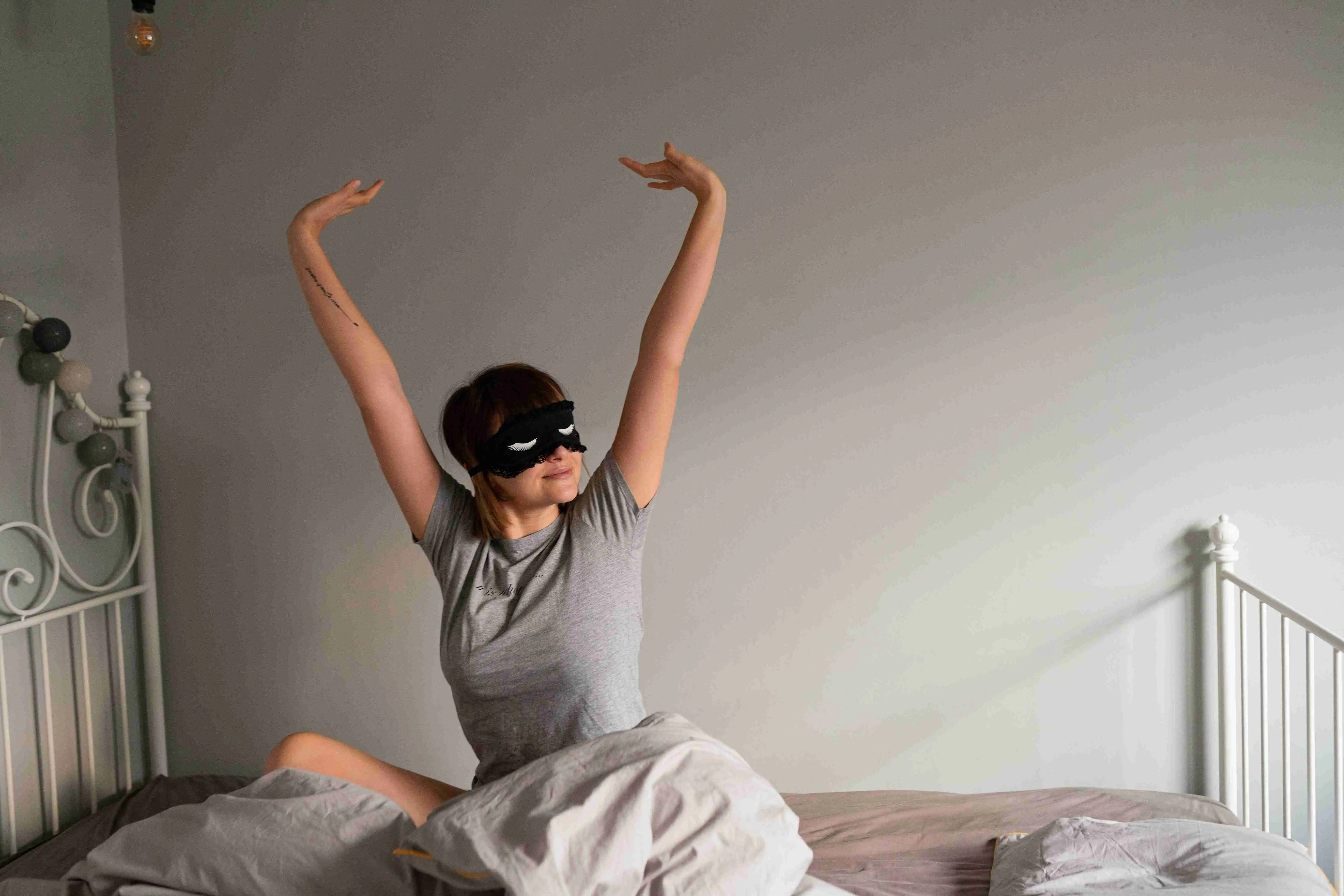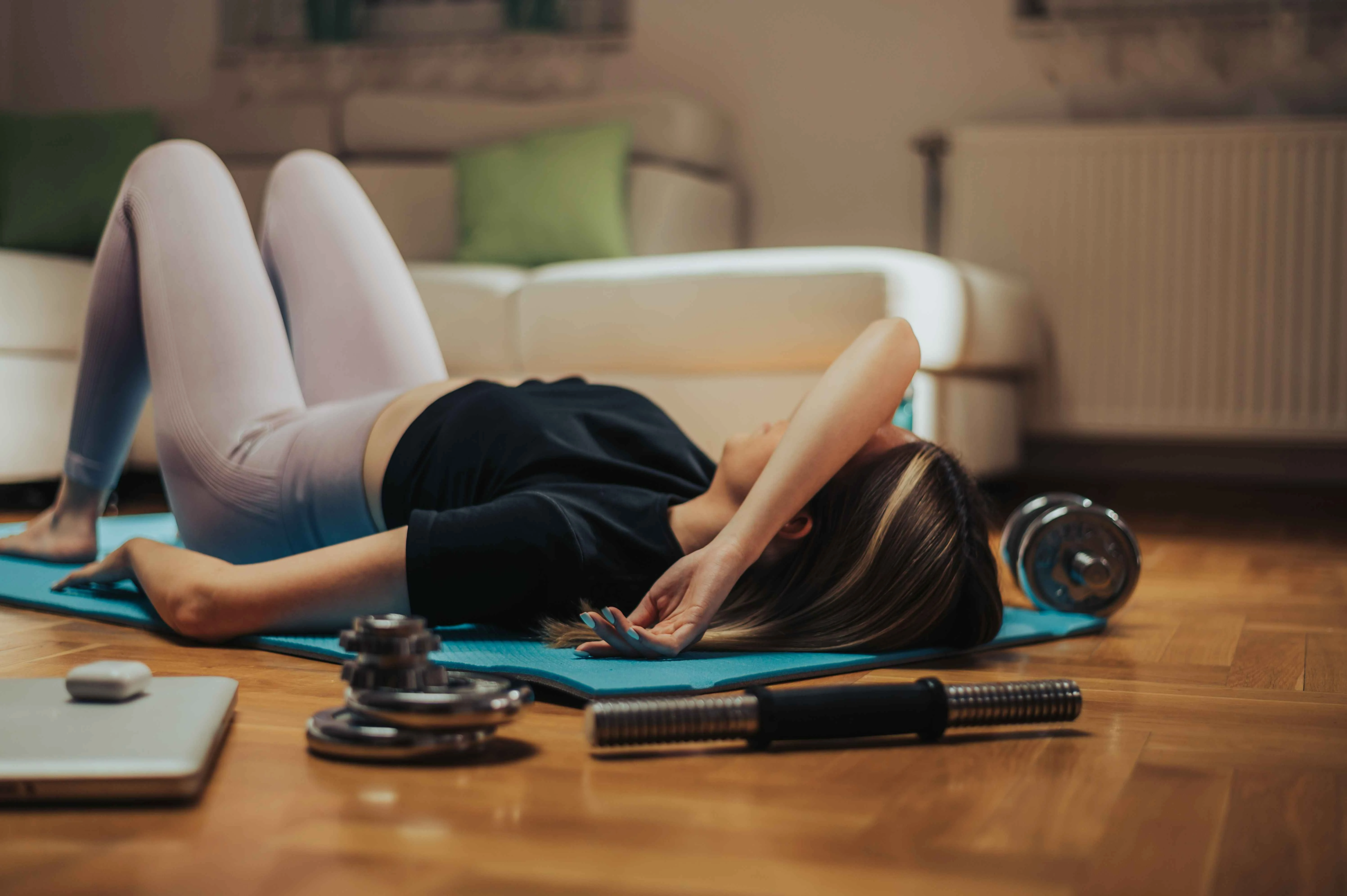Exercise and insomnia are two seemingly unrelated aspects of our lives. However, regular exercise has proven numerous benefits for our physical and mental health, establishing a strong connection between the two. Exercise can enhance the quality of sleep and alleviate the symptoms of insomnia.
In this article, we will explore the relationship between exercise and insomnia and discuss how incorporating exercise into our daily routine can help promote better sleep.
What is insomnia?
Insomnia is a common sleep disorder that affects millions of people worldwide. It is characterized by difficulty falling asleep, staying asleep, or having restful sleep. One cannot overstate the impact of insomnia on an individual's quality of life.
Does exercise help insomnia?
Exercise for insomnia is an effective way to relieve the symptoms of insomnia. People who exercise regularly are less susceptible to dealing with insomnia, as exercise improves sleep quality, reduces the time it takes to fall asleep, and increases total sleep time.
How does exercise improve sleep and insomnia?
Regular exercise has been proven to have numerous benefits for overall health and well-being, and one area that it particularly impacts is sleep quality and insomnia.
Reducing Anxiety and Stress Levels
Anxiety and stress are common triggers for insomnia, and exercise has been proven to be an effective stress reliever. Physical activity stimulates the production of endorphins, the brain's feel-good chemicals, which can help alleviate feelings of anxiety and promote relaxation.
Regular exercise can also help regulate the body's stress response system, making it easier to wind down and fall asleep at night.
Regulates Circadian Rhythm
Regular physical activity helps regulate the body's internal clock, also known as the circadian rhythm. This internal clock plays a crucial role in regulating sleep-wake cycles.
By engaging in regular exercise, especially in the morning or early afternoon, people with insomnia can help reset their circadian rhythms and promote better sleep patterns.
Additionally, exercise raises body temperature, and the subsequent drop in temperature after exercise can signal the body that it is time to sleep.
Sleep Faster
Exercise can also tire out the body physically, making it easier to fall asleep at night.
Engaging in moderate to vigorous physical activity during the day can help expend energy and reduce feelings of restlessness that often accompany insomnia. It also promotes the production of melatonin, which is the hormone responsible for sleeping.
By tiring out the body through exercise, individuals with insomnia may find it easier to relax and drift off to sleep when bedtime comes around.
Raising Your Core Body Temperature
After exercising, your body temperature gradually decreases, which promotes feelings of relaxation and drowsiness.
This decrease in temperature signals to your body that it's time to wind down and prepare for sleep.
As a result, individuals who exercise regularly often experience deeper and more restful sleep compared to those who lead sedentary lifestyles.
Best Exercises to Combat Insomnia
While there are various treatment options available for insomnia, exercise has been proven to be an effective and natural remedy. Regular physical activity can help improve sleep quality and duration, making it one of the best exercises for insomnia.
Aerobics

This type of exercise increases heart rate and breathing, promoting better blood flow and oxygenation throughout the body.
It also releases endorphins, which are natural mood-boosting chemicals that can help reduce anxiety and stress, both of which can contribute to insomnia.
Examples of aerobic exercises include brisk walking, jogging, cycling, swimming, and dancing.
Yoga

Yoga combines physical movement with deep breathing and meditation, promoting relaxation and stress reduction.
Specific yoga poses, such as Child's Pose, Legs-Up-the-Wall, and Corpse Pose, can be particularly beneficial for those struggling with insomnia.
Incorporating yoga into a daily routine can help promote a sense of calm and tranquility, leading to better sleep.
Strength Training

Strength training involves using resistance to build muscle strength and endurance and can increase the amount of slow-wave sleep, which is the deep, restorative sleep that is essential for overall well-being.
Examples of strength training exercises include weightlifting, bodyweight exercises, and resistance band workouts. Incorporating strength training into a balanced exercise routine can contribute to better sleep and overall health.
Stretches

Stretching before bedtime helps to relax the muscles and release tension, making it easier to unwind and prepare for sleep.
Gentle stretching exercises such as neck rolls, shoulder stretches, and hamstring stretches can be particularly beneficial in promoting relaxation and alleviating insomnia symptoms.
Tai Chi

Tai Chi is a mind-body practice that combines gentle movements, deep breathing, and meditation. It has been shown to improve sleep quality and reduce sleep disturbances.
The slow and controlled movements of Tai Chi help to calm the mind and relax the body, making it easier to fall asleep and stay asleep throughout the night.
Learn more about the Best Exercises for Better Sleep.
When and How Much to Exercise for Optimal Sleep
The best timing to exercise for better sleep depends on individual preferences and schedules. Some people may find that exercising in the evening helps them release stress and tension accumulated throughout the day, leading to a more restful sleep.
Exercising in the morning can be beneficial for sleep. Engaging in physical activity early in the day can help in setting the body's internal clock, known as the circadian rhythm.
Exercise before bedtime can harm sleep. Intense physical activity stimulates the body and increases heart rate, which can make it difficult to relax and wind down before bed. It also raises the body's temperature, which needs to cool down before falling asleep.
When Exercise Can Disrupt Sleep
While exercising can be a great way to alleviate the symptoms of insomnia. However, there are instances when exercise can actually disrupt sleep patterns.
Late-Night High-Intensity Workouts
While exercise is generally recommended to promote better sleep, performing vigorous exercises close to bedtime can have the opposite effect.
This is due to the increase in heart rate, body temperature, and adrenaline levels that occur during high-intensity workouts. These physiological changes can make it difficult for the body to relax and unwind, making it challenging to fall asleep, so it's important to know how many hours before bed you should exercise.
Overtraining and Exhaustion
Overtraining, which involves excessive exercise without adequate rest and recovery, can also negatively impact sleep quality. When the body is overtrained, it undergoes a state of heightened stress, leading to elevated levels of cortisol, a hormone that regulates stress and sleep.
Elevated cortisol levels can disrupt the normal sleep pattern by increasing alertness and making it harder to fall asleep or stay asleep.
Short Recovery Windows
Exercises that require short recovery windows, such as high-intensity interval training, can also interfere with sleep. The body may still be in an elevated state of alertness, making it challenging to achieve restful sleep.
Therefore, it is advisable to schedule exercise sessions earlier in the day to allow for adequate time for the body to wind down before bedtime.
Signs You Need to Scale Back Your Workout Routine
Regular exercise is an essential part of a healthy lifestyle, but there are times when it's important to recognize the signs that you need to scale back your workout routine.
Persistent Fatigue
While it's normal to feel tired after a tough workout, if you find that you are consistently lacking energy and struggling to complete your workouts, it may be a sign that you need to take a step back and give your body some time to rest and recover.
Frequent Muscle Soreness or Joint Pain
While some muscle soreness is expected after a challenging workout, excessive or prolonged soreness can be a sign of overtraining.
Similarly, if you are experiencing pain in your joints, it's important to pay attention and not ignore the warning signs. Pushing through the pain can lead to further injury and setbacks in your fitness journey.
Mental and Emotional Exhaustion
Exercise can be a great stress reliever and mood booster, but too much of a good thing can have the opposite effect. If you find that your workouts are leaving you feeling drained and overwhelmed rather than energized and uplifted, it may be a sign that you need to take a break or reduce the intensity of your workouts.
Not Seeing Any Progress or Improvements
It may be a sign that you need to make some changes. Overtraining can hinder your progress by preventing proper recovery and muscle growth. By scaling back your workout routine and allowing your body the time it needs to rest and repair, you may find that you start seeing better results.
Tips for Exercising to Improve Sleep

By establishing a regular exercise routine, you can enhance the quality of your sleep and reap the numerous benefits that come with a good night's rest.
Find the Best Time To Exercise for Sleep
Consider the timing of your workouts. We recommended avoiding exercising too close to bedtime, as the increase in heart rate and body temperature can make it difficult to fall asleep.
Secondly, choose the type of exercise that suits your preferences and needs. Whether it's cardio exercises like running or swimming or more gentle activities like yoga or stretching, finding an exercise that you enjoy will make it easier to stick with a routine.
Maintain Consistency
Consistency is key when it comes to exercising to improve sleep. Establishing a regular exercise routine and sticking to it can greatly enhance the quality of your sleep. Aim for at least 30 minutes of moderate-intensity exercise most days of the week.
By exercising consistently, your body becomes accustomed to the routine, making it easier to fall asleep and stay asleep throughout the night.
Manage Intensity Levels
While high-intensity workouts may be beneficial for other aspects of health and fitness, they can sometimes have a negative impact on sleep.
An intense workout before bed stimulates the body and mind, making it difficult to wind down and relax before bedtime. Instead, opt for moderate-intensity exercises such as brisk walking, cycling, or swimming.
Outdoor Workouts for Sunlight Exposure
Incorporating outdoor workouts into your exercise routine can also have a positive impact on sleep. Exercising outdoors exposes you to natural light, which helps regulate your body's internal clock and improves sleep quality.
Additionally, being in nature can reduce stress levels and promote relaxation, making it easier to fall asleep at night.
Create a Relaxing Cool-Down Routine
This can include activities such as stretching, deep breathing exercises, or even a warm bath. By engaging in these calming activities, the body can transition from an active to a more relaxed state, making it easier to fall and stay asleep throughout the night.
Stay Hydrated
Dehydration can lead to muscle cramps and discomfort, which can disrupt sleep. It is essential to drink enough water throughout the day to maintain proper hydration levels.
During exercise, it is recommended to drink water regularly to replace any fluids lost through sweat.
Additionally, consuming a small amount of water before bedtime can help prevent waking up due to thirst during the night.
FAQs
Can too much exercise cause insomnia?
There are instances where people start to get insomnia after workouts. One possibility is that exercising too close to bedtime can increase alertness and make it difficult to fall asleep. The adrenaline and endorphins released during exercise can also have a stimulating effect and can make you have trouble sleeping after exercise.
How much exercise do you need for better sleep?
The amount of exercise required for better sleep varies depending on individual factors such as age, health, and fitness level. Generally, adults should aim for at least 150 minutes of moderate-intensity aerobic exercise or 75 minutes of vigorous-intensity aerobic exercise per week.
Why does exercise improve sleep?
High-intensity exercise can increase the release of stress hormones, such as cortisol, which can interfere with the body's natural sleep-wake cycle. Additionally, the elevation in body temperature during intense exercise can take some time to return to normal.
Know more about How Does Exercise Affect Sleep.
What is runner’s insomnia?
Runner's insomnia, also known as exercise-induced insomnia, refers to the difficulty runners experience in falling asleep or staying asleep after engaging in physical activity. This condition is particularly common among athletes and individuals who engage in intense exercise regimes.
How do you stop exercise-induced insomnia?
To stop exercise-induced insomnia, there are several strategies that one can employ. Firstly, it is important to establish a consistent exercise routine and sleep hygiene. Additionally, implementing relaxation techniques such as deep breathing or meditation can help calm the mind and prepare it for rest, and in some rare cases you can resort to sleep medication after consulting a health care professional.
How is insomnia diagnosed?
When a patient presents with symptoms such as difficulty falling asleep, staying asleep, or waking up too early, a healthcare provider will typically conduct a thorough physical examination and take a detailed medical history.
Know more about Diagnosing Insomnia.
Conclusion
Exercise and sleep are closely connected, so if you are struggling with insomnia, consider incorporating exercise into your daily routine and experiencing the positive effects it can have on your sleep patterns and overall health.
it is important to note that the timing and intensity of exercise can vary from person to person. Therefore, it is crucial to consult with a healthcare professional or a certified trainer to develop an exercise routine tailored to individual needs.
Jessica H.
Jessica is a reviewer, writer, and sleep enthusiast at Sleepiverse. Jessica graduated with her master's degree in Nursing research and education. She is a registered nurse and currently works in the Intensive Care Unit. Since becoming a nurse, Jessica has worked the night shift, which means a disrupted sleep schedule. Knowing she needed to function at her best while caring for patients at night, she spent a lot of time researching how to sleep well with a difficult schedule.


